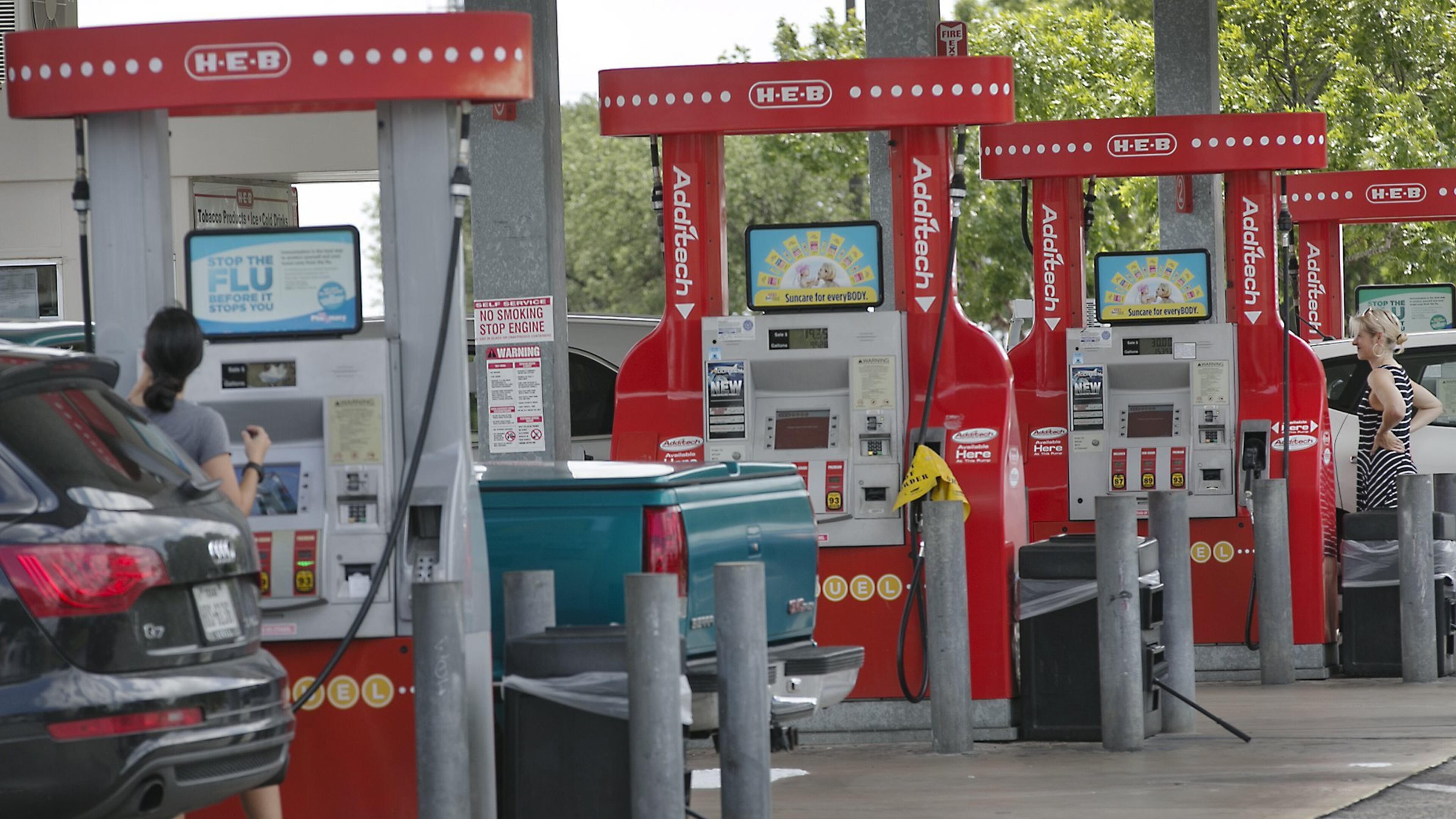Gas is flowing to Atlanta, but prices won’t be falling soon

The pipelines are pumping, the gas is flowing, Houston is drying out and the threat of a gas crisis is rapidly ebbing. But don't expect gas prices to fall much in coming days.
Partly because prices always fall more slowly than they rise, even when supplies are being replenished.
But largely because of one four-letter word: Irma.
"Unfortunately, for motorists in the southeastern United States, they may not see prices move lower until Hurricane Irma is long gone," said Mark Jenkins, spokesman, AAA, The Auto Club Group.
Unfortunately, it is the second half of a one-two punch.
Two weeks ago, Hurricane Harvey approached and then pummeled Houston and since then, the price of gas in metro Atlanta has climbed an average of 55 cents a gallon. Gas averaged $2.78 a gallon on Tuesday morning, roughly 13 cents above the national average, according to Atlanta Gas Prices, a unit of Gas Buddy.
Prices Tuesday ranged from $2.22 at a Decatur Citgo to $3.15 a gallon at a Texaco in Jonesboro.
A year ago, gas was $2.20 a gallon in metro Atlanta.
Harvey closed the Port of Houston, shuttered refineries and damaged infrastructure needed to transport fuel, which meant an effective shutdown of the two critical conduits operated by Colonial Pipeline.
Those lines provide the lion’s share of fuel to metro Atlanta. So the closure sparked fears of a shortage as Atlanta eventually ran through the supplies on hand.
But Colonial announced Monday that one of its pipelines was pumping again from Houston and the other should start carrying Houston fuel Tuesday.
“Gas prices are reaching a point where they should begin to plateau,” Jenkins said.
News that Houston was back online was welcome, but not enough to erase the uncertainty about Irma.
That huge storm became a Category Five hurricane on Tuesday with winds potentially reaching 175 miles per hour or more. Its ultimate path is uncertain and some projections show the storm could head straight into Georgia.
Even if the state escapes its wrath, drivers here could have to cope with the impact on gas markets and deliveries.
But the best guesses are that it will steer clear of the vast energy infrastructure in and around the Gulf of Mexico, according to Patrick DeHaan, a senior industry analyst with Gas Buddy.
The impact would be “more localized, state level,” he said.
Gov. Rick Scott has declared a state of emergency in Florida, which likely means – whatever the storm's path – thousands of drivers heading north into Georgia.
The storm could also skirt Florida and head back toward Texas, which would be terrible news for a region still recovering from Harvey and would potentially shut down crucial refineries and oil rigs in and around the Gulf of Mexico.
Prices now are the highest they have been in Georgia since the early summer of 2015. They remain far short of the record high – $4.16 a gallon – that came in the wake of Hurricane Katrina in September 2008.
The storm’s onslaught renewed the long debate about “gouging,” an emotional question that often pits consumers against economists and free-market principles.
Florida’s emergency degree bans gouging, prohibiting station from significantly raising prices beyond what they’ve charged in the past 30 days. Gov. Deal in Georgia has signed similar measures.
Free-market advocates often argue that the government-imposed limit on prices can be counter-productive – creating create a shortage all by itself. At an artificially low price, more people will buy gas even when they don’t really need it.
So higher prices make limited supplies last longer, since it makes people less likely to buy more than what they need.
But on the other hand, when retailers reap profits by taking advantage of a situation – when consumers have little choice – it just doesn’t seem fair.
MYAJC.COM: REAL JOURNALISM. REAL LOCAL IMPACT.
AJC Business reporter Michael E. Kanell keeps you updated on the latest news about jobs, housing and consumer issues in metro Atlanta and beyond. You'll find more on myAJC.com, including these stories:
- Metro Atlanta strong on jobs, weak on wage growth
- Where are Atlanta's most expensive neighborhoods?
- Atlanta's tourist allure rising, by some measures
Never miss a minute of what's happening in local business news. Subscribe to myAJC.com.
More Stories
The Latest



